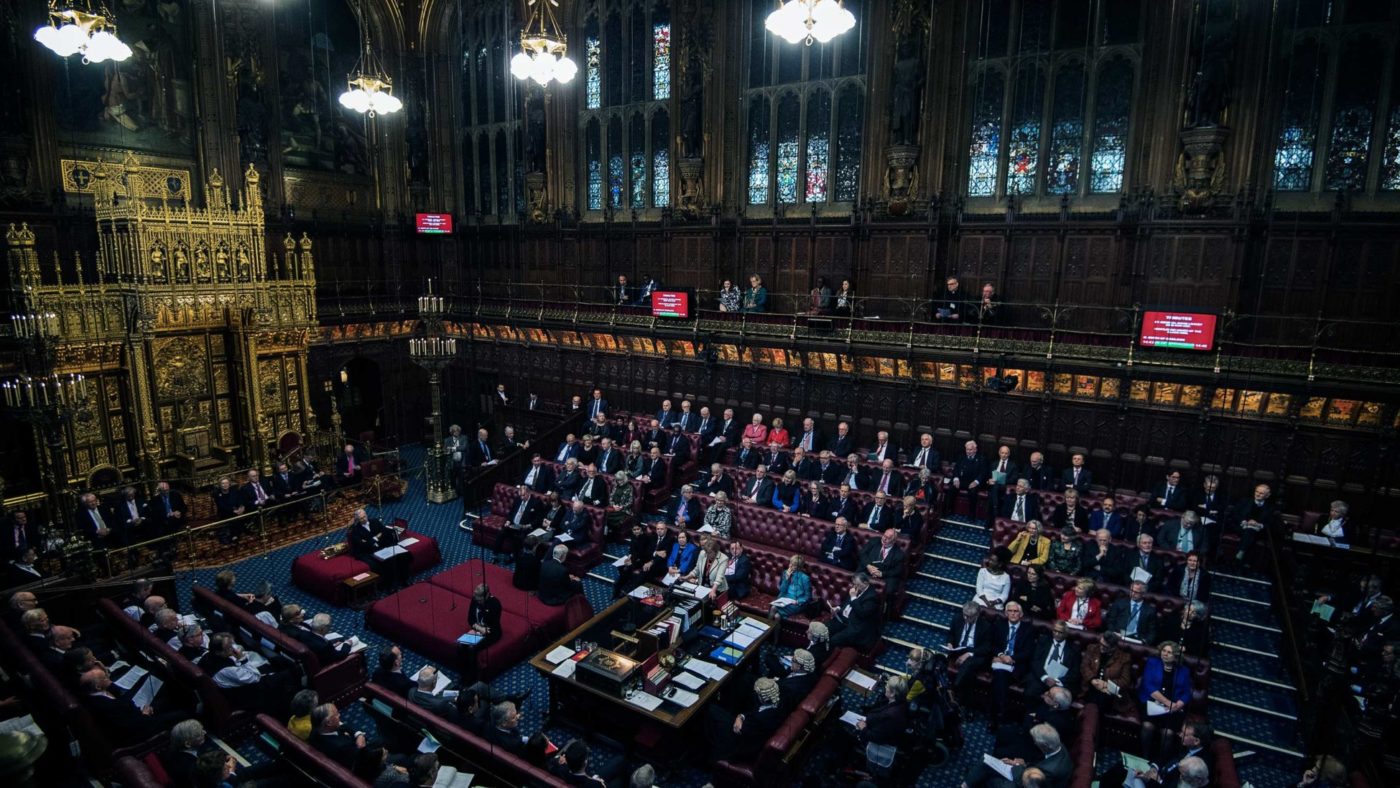In one of those “careful what you wish for” unintended consequences, anti-Brexit agitators may have unleashed constitutional reforms with a wider reach than dreary negotiations about the product labels and border control (how anyone gets worked up about leaving the EU is one of life’s big mysteries, for me).
So angry were (at least) 123,821 voters in response to the Lords’ vote to keep the UK in the Customs Union (that is: “stay in the EU in an even less satisfactory manner than now”) that they signed Robert McBride’s petition to “Give the electorate a referendum on the abolition of the House of Lords”. Because the number of signatories exceeds 100,000, the Government is rules-bound to offer a debate in Parliament on the topic — and to offer a response.
I’d guess Mrs May will resist further remodelling of the country’s decision-making architecture at the moment: but the Opposition needn’t feel so constrained.
Speaking for abolition could be the Labour member for Streatham, Mr Chuka Umunna. After all, he not only welcomed the defeat for the government’s Brexit bill in the Lords last week, but as far back as 2014 told the Independent newspaper that “The House of Lords should be abolished and replaced with a senate of people representing cities and regions”. He went on to admit that “I’m pretty big bang on this. Clear all of that lot out, as far as I’m concerned.”
Could abolition of the Lords be the nation’s healing moment, then? A big bang to consummate the political desires of arch-Remainer Chuka with the likes of UKIP MEP William (the 10th Earl of) Dartmouth?
Earl William after all is one of “that lot” previously big-banged out of the Lords by Chuka’s hero, Tony Blair, but even Earl William has written that “The time has come for the House of Lords to go.”
I’m day-dreaming of course. Very few anti-Brexit MPs will speak in favour of Lords abolition — certainly not in response to a referendum, the very notion of which brings on the vapours (see Lord Adonis for details, “banging” enough for anyone) — and various Jesuitical arguments will be constructed to talk the motion out. Which feels, at least to this non-ideological Tory, a shame.
I’ve come to realise that our constitution is made of stronger stuff than the fears (genuinely) held about it. I opposed Scottish devolution, and I mean viscerally opposed it, because I thought it wouldn’t slay the SNP monster (Labour’s objective) but would rather encourage nationalists in ever-more hysterical demands for full independence.
And indeed, predictably and predicted, post-devolution the SNP vote soared. Until the unionists got their act together, fought back, and beat the nationalists at their own referendum game. My fears were entirely misplaced.
In 2016 many people told us in good faith that a vote for Brexit would unravel the UK. People I respect argued that Remain-ish Scotland wouldn’t tolerate our very British union, were Leave-ish England to end membership of the synthetic European version.
That assertion continued post-Brexit vote, until last year’s general election, when Scotland (which had indeed voted Remain) replaced more than a dozen SNP MPs with thirteen Conservative Unionists (plus a couple of other MPs from the minor unionist Scottish parties.)
In my lifetime, that enemy of representative parliamentary democracy — the referendum — has done nothing more radical than cement Scotland within the UK; take us into, and then out of, the pointless EU; and killed off one of the Lib Dems’ more insane algorithms for counting votes. Britain can cope with the occasional referendum.
So bring it on, Mr McBride. I signed the petition. The current House of Lords, comprised of party hacks, defeated MPs, failed EU Commissioners (and their wives), malicious trades unionists and random Bishops is unsupportable: it has no validity to make decisions about the laws which govern us. That which is unsupportable ought not to be supported, and so the Lords should be abolished. But (the usual Tory worry) — would a replacement make things worse?
There are only two mechanisms by which validity can be conferred on a decision-making body in the modern era. “Because the unelected monarch says so” doesn’t really cut it any longer, at least not outside the feverish wine-fuelled ravings of [insert name of your least favourite EU commissioner here].
Election is one such mechanism, but an elected senate would be in perpetual counter-legislative conflict with the lower chamber. “Oh we’d insist that the Commons had priority in the case of roadblock”, airily insist supporters of an elected Lords. But algorithms for giving the lower house precedence would fail, because (as we’ve seen) validity comes from the act of election, not the act of election to one particular House. Both upper and lower chamber would have equal decision-making validity, whatever was written into the procedures manual.
The other mechanism by which decision-making authority can be validly conferred is random selection, as with a jury. I’ve written elsewhere in favour of this notion sufficiently often to realise that it’s a non-starter. It’s never a popular proposal (ironically, given the roots of “popular”). Maybe because I’m a statistician, I love the idea of citizens elevated to power completely at random. “It could be you!” I’ve joked, when debating the idea in public. “Good God, no!” has been most audiences’ response.
So, absent support for random selection, let’s just get rid of the upper House. Some committee of senior elected MPs and elected mayors and elected devolved government ministers (note the common adjective) could review and recommend revisions of legislation, without being able to block the will of the Commons for more than some well-defined time limit. It’s not as though legislation can’t be challenged in the courts.
And after a decade or so, should we find that we missed the legislative contribution of the upper chamber, we could always bring it back: with another referendum, of course. Trust the people, my party used to say. Go on then. Trust them.


